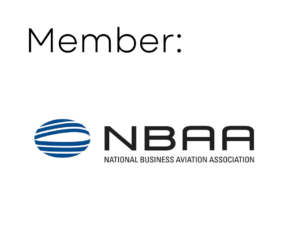In the fast-paced world of aviation, managing a modern fleet’s aircraft records can be a Herculean task. Maintenance schedules, safety checks, and regulatory compliance generate a vast amount of data that needs to be stored, tracked, and analyzed. Aircraft records management software offers a solution that revolutionizes how this data is handled, offering a multitude of advantages that can streamline operations and ensure efficiency. Here’s a look at how such software is changing the game for modern fleets.

Streamlined Data Management
Aircraft records management software provides a centralized platform for storing all data related to fleet management. From flight logs to maintenance records, everything is stored in a single location, accessible from anywhere, at any time. This not only eliminates the physical storage space required for paper records but also significantly cuts down the time needed to retrieve and manage records.
Enhanced Regulatory Compliance
One of the critical benefits of using specialized software is staying ahead in the compliance game. The software can be programmed to align with current regulations and adapt to changes, ensuring that fleets remain compliant with industry standards. It can automatically alert staff to upcoming inspections or maintenance requirements, thereby avoiding regulatory pitfalls.
Improved Accuracy and Reduced Errors
Human error in manual record-keeping can lead to costly mistakes. Software solutions help minimize these risks by automating data entry where possible and providing standardized formats for manual entries. This leads to improved accuracy in records and supports better decision-making.
Cost Efficiency
By automating and optimizing the record-keeping process, management software reduces the need for labor-intensive manual record-keeping. This can translate to considerable cost savings over time, as less staff time is spent on paperwork, and more is devoted to operational efficiency.
Better Decision Making
Data analytics is a powerful feature of modern management software. It can analyze vast amounts of data to predict maintenance needs, optimize flight operations, and enhance the overall performance of the fleet. With accurate data at their fingertips, managers can make informed decisions that benefit the bottom line.
Increased Aircraft Availability
Properly maintained records can help streamline maintenance processes and minimize aircraft downtime. Software solutions provide maintenance teams with real-time data, enabling them to act swiftly and keep the fleet in the air as much as possible.
Security and Backup
Digital records managed by software solutions offer superior security features compared to traditional paper-based systems. Data encryption, access controls, and cloud-based backups ensure that sensitive information is protected against unauthorized access and data loss.
Scalability
As fleets expand, the amount of data increases exponentially. Aircraft records management software is scalable, which means it can grow with the business without losing performance. This makes it an ideal solution for fleets looking to scale operations without compromising on record integrity.
Conclusion
Aircraft records management software offers a suite of benefits that align perfectly with the needs of modern fleets. From regulatory compliance and data accuracy to cost savings and improved decision-making, the advantages of implementing such systems are clear. As the aviation industry continues to grow and evolve, these software solutions stand out as indispensable tools for fleet management.
